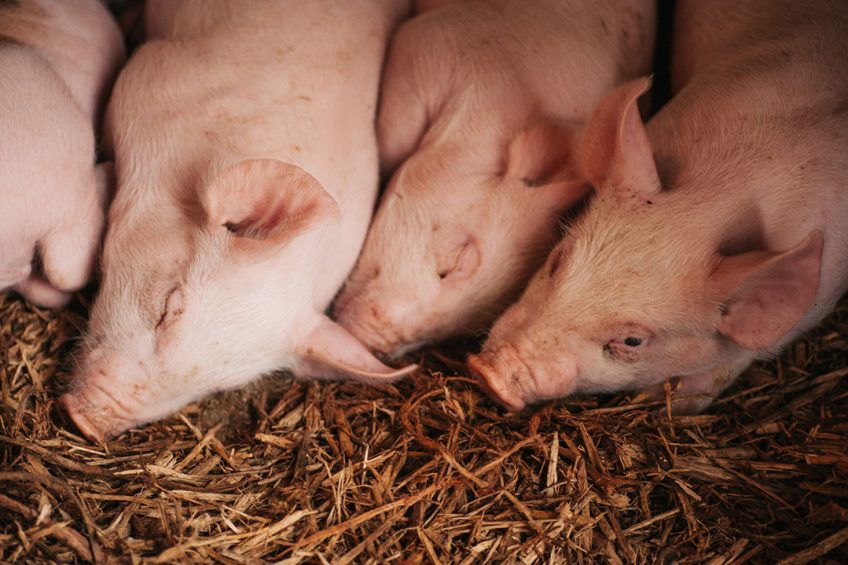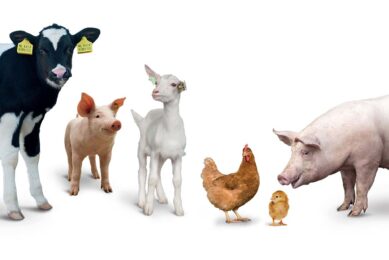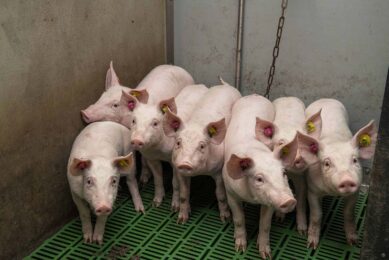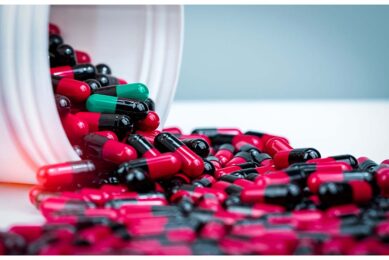Oxidised β-Carotene copolymer improves gut health

Recently discovered copolymer derived from ß-Carotene oxidation offers an immunological approach for improving multiple facets of gut health and helps to support optimal productivity.
Immune modulation represents a compelling approach for promoting or maintaining gastrointestinal tract (GIT) health. The abundance of innate immune factors present in the gut makes products that specifically target innate immunity of particular value. Research conducted with a recently discovered and immunologically active copolymer compound derived from oxidised β-carotene provides compelling support for the concept of innate immune modulation as a means of improving GIT health. Research studies and commercial use show that the activities of the copolymer improve GIT health, which ultimately results in increased animal productivity and improvements in overall health.
The existence and immunological activity of the copolymer was discovered by Avivagen, a Canadian biotech company. The compound arises naturally from the full, spontaneous oxidation of β-carotene and occurs in highly variable levels in various plant-based feeds and foods. Avivagen has developed a commercial product for use in feed, OxC-beta Livestock (“OxC-beta”), that is a concentrated and consistent source of the copolymer. The product is able to prime the innate immune system towards a more “ready state of alert” to invading pathogens, as well as limiting the propagation of excessive inflammation.
Primed immune system
The innate immune system is primed by increasing the number of pattern recognition receptors, which, sensing microbial or other pathogenic invaders, triggers a response to combat them. This contrasts with immune stimulating products, which continuously activate existing receptors. The benefit of immune priming versus stimulation is that priming has no on-going metabolic cost in the absence of a pathological challenge to the animal. Evidence of the positive benefits of innate immune priming on GIT health has been obtained in trials that show a reduction in the levels of gram-positive and gram-negative pathogens in broilers and piglets receiving dietary supplementation with the copolymers. Clostridium perfringens challenged broilers supplemented with the copolymer experienced up to a 2.5-log reduction in the CFU count relative to control birds. Further benefits were observed in the form of reduced intestinal lesion severity. The reduction in lesion severity highlights an immune priming action of the copolymer that does not cause an over-zealous immune response that could damage healthy tissues.
Reduced E. coli levels
In a piglet trial, dietary supplementation with the copolymer led to reduced E. coli levels in the ileum (3.2 log), caecum (3.2 log) and faeces (4.2 log) relative to the negative control group. E. coli levels in the copolymer-treated group also tended to be lower than that of the antibiotic group (Tiamulin + Chlortetracycline). Dietary supplementation with copolymer in post-wean piglets reared under commercial production conditions resulted in reductions of up to 53% in the incidence of diarrhoea. It is important to note that the copolymer does not possess antimicrobial activity; rather the effect on bacterial levels stems indirectly from priming of the immune system, allowing the host to more readily detect and respond to the presence of bacteria.
Chronic, low-level immune activity can negatively impact gut morphology and cause reduced efficiency due to loss of absorptive capacity. At a mechanistic level, the β-carotene-derived copolymer has shown the ability to normalise or balance immune activity in a number of research models of gut, lung and skin. The benefits of balancing immune activity can be observed as an increase in villus length/crypt depth (V/C) ratio in both broilers and piglets. An increase in this ratio is known to improve nutrient absorption and feed efficiency through an expansion in the absorptive area of the intestine. In broilers, the dietary copolymer was shown to increase the V/C ratio in a dose-dependent manner relative to a negative control, while in piglets, a similar dose-dependent response was evident compared to an antibiotic control group.
Healthy gut microbiome
Immune modulation offers further benefits for GIT health, in the form of promoting a healthy gut microbiome. The complex community of microbes that make up the microbiome are known to play an important role in GIT health, as well as the overall health of the animal. The immune system of the GIT has evolved mechanisms favouring colonisation by beneficial bacteria and combatting colonisation by pathogenic species. Supporting the function of the host’s gut immune system harnesses these existing immune mechanisms thus promoting a healthy microbiome, which in turn benefits the host. This is in contrast to strategies that directly target pathogenic bacteria, including use of antibiotics and therapeutic levels of heavy metals, but which have unintended negative consequences on beneficial species of bacteria present in the gut, resulting in dysbacteriosis. Evidence of the benefits of immune modulation on the gut microbiome is provided by a study with mice supplemented with dietary copolymer. Treatment saw an increase in the relative abundance of commensal (“beneficial”) bacterial groups, including Bifidobacterium spp. (3-fold) and Lactobacilli spp. (1.5-fold), while pathogenic Clostridium spp. were reduced 2.5-fold.
Health and performance
An essential outcome for any approach to improving GIT health is a healthier, more productive animal. Trials evaluating the performance of broilers and pigs supplemented with OxC-beta (as the source of copolymer) confirm that the observed improvements in GIT health translate into improved health and performance. In addition, trials evaluating the copolymer in other animals, including sows and dairy cattle, demonstrate that its immunological activities extend beyond the gut to benefit animal health and productivity by supporting mucosal immunity in other organs such as the mammary gland and lung. These trial results support an immunological approach for improving gut health and animal performance, as well as the utility of OxC-beta as a reliable source of immunologically active copolymer that is a next-generation additive for supporting GIT health.
Author:
William Riley, Jinan University, Guangzhou China
 Beheer
Beheer





 WP Admin
WP Admin  Bewerk bericht
Bewerk bericht